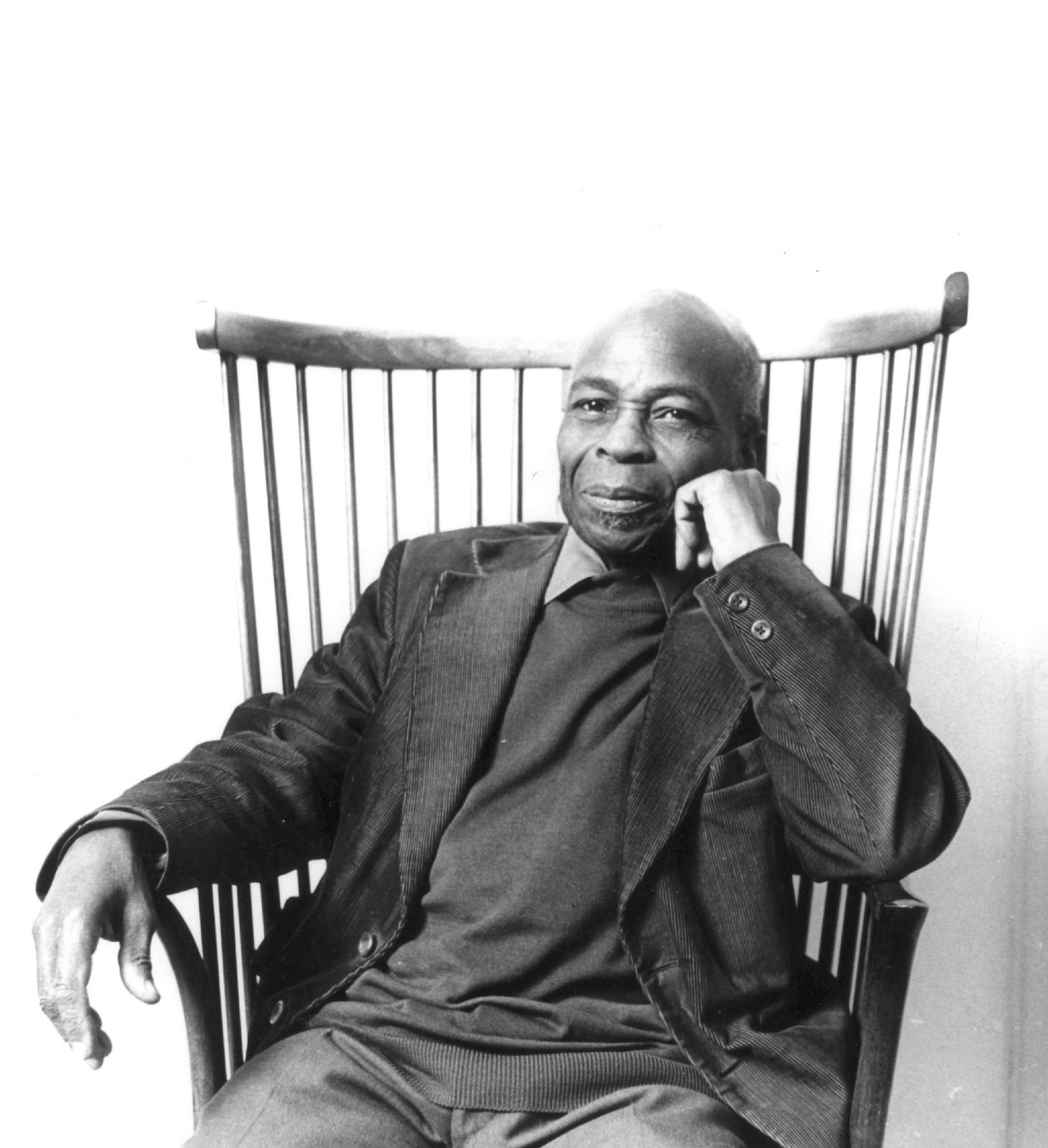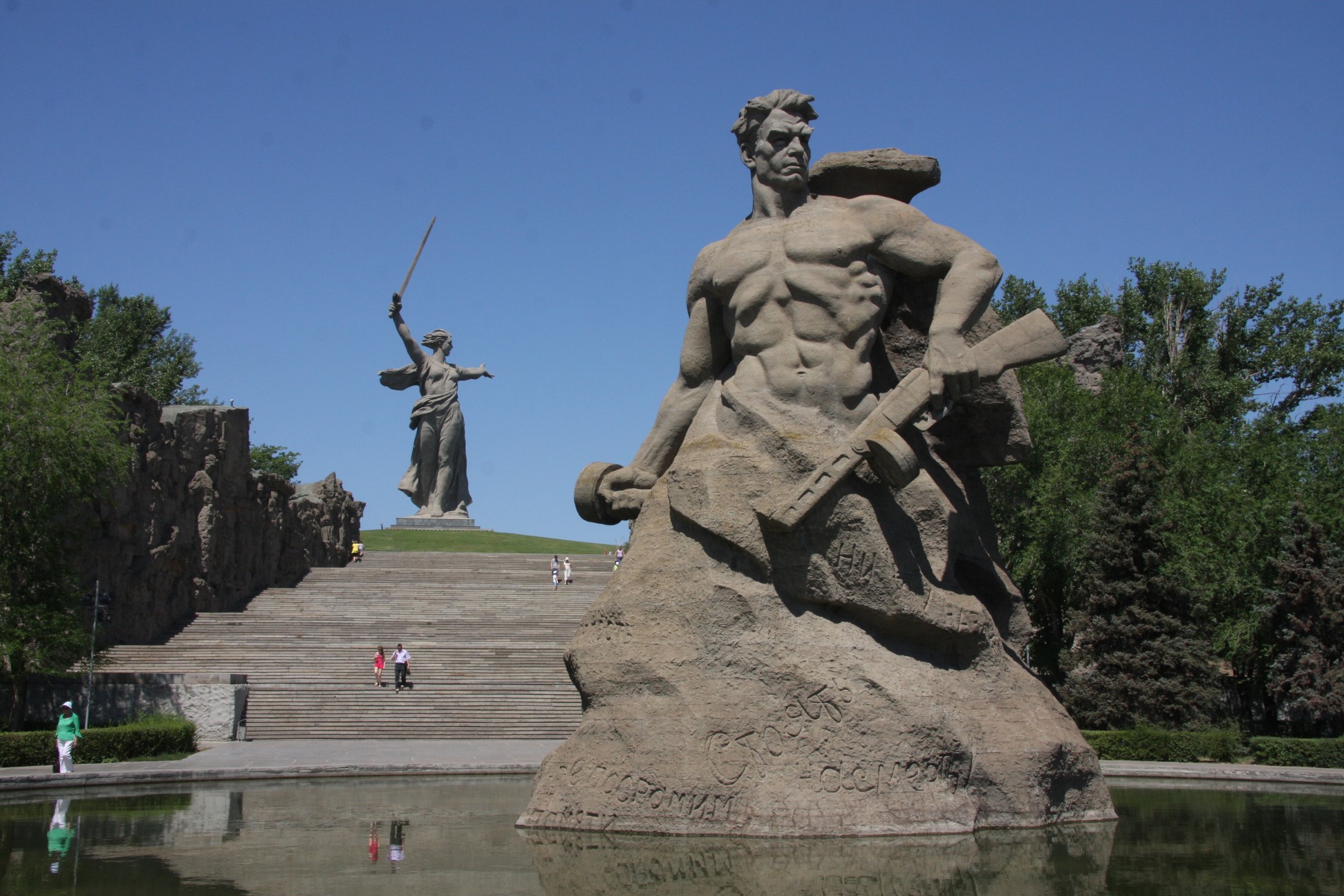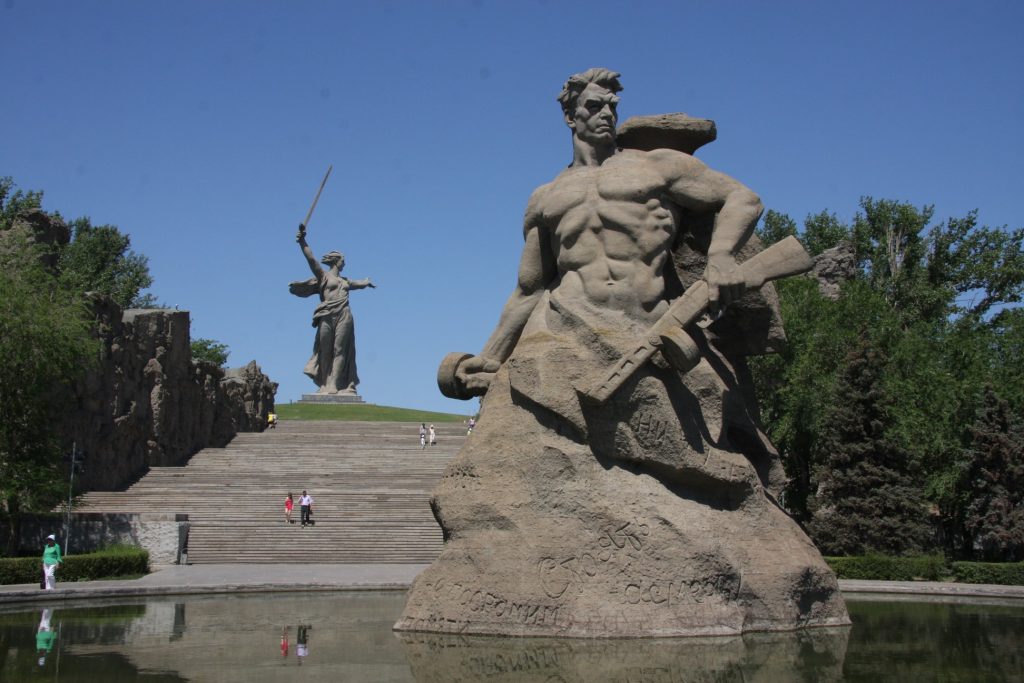Stalingrad by Peter Blackman
Blackman (1909-1993) was born in Barbados in 1909 and, after receiving a traditional colonial education at Harrison College, one of the island’s best schools, he studied theology at the University of Durham on a scholarship obtained through the Anglican Church.
In 1935 he became a priest and was sent to Gambia. On arrival, he noticed that black priests ranked lower than white priests and were paid less too. He challenged the authorities over this blatant racism, but finally decided to resign and to go back to Barbados. In 1937 he migrated to Britain where he was to spend the rest of his life.
Once in Britain he became very active in West Indian and left-wing political movements like the Negro Welfare Association and the League of Coloured Peoples (LCP). In 1938 he became the editor of The Keys, the journal of the LCP. Blackman was also instrumental in setting up the influential Committee on West Indian Affairs to advise politicians on West Indian issues. Around the same time, he joined the British Communist Party.
In 1952 his long poem “My Song is For All Men” was published by Lawrence and Wishart both in London and New York. In May 1954 a talk he gave on “Negro Writers” was broadcast by the BBC on its pioneering “Caribbean Voices” programme and in 1948 his article entitled “Is There a West Indian Literature” appeared in an issue of Life and Letters.
Despite these efforts, lack of recognition forced Blackman to work as an engine fitter in a railway depot in Willesden (North London) for most of his life, priding himself on the fact that he was the only mechanic who knew Greek and Latin.
*

Hushed was the world
And oh, dark agony that suspense shook upon us
While hate came flooding o’er your wide savannas
Plunging pestilence against you –
All that stood to state: “Where men meet
There meets one human race!”
Therefore did men from Moscow to the Arctic
Rounding Vladivostok to the South where Kazbek lifts its peak
Still work and working waited news of Stalingrad
And from Cape to white Sahara
Men asked news of Stalingrad
Town and village waited what had come of Stalingrad
The tom-tom beat across thick forest
While every evening at Palava
Old men told of Stalingrad
The gauchos caught the pampas whisper
The windswept hope of Stalingrad
And in the far Canadian north
Trappers left their baiting for the latest out of Stalingrad
In the factories and coal fields
Each shift waited what last had come from Stalingrad
While statesmen searched the dispatch boxes
What they brought of Stalingrad
And women stopped at house work
Held their children close to hear
What was afoot at Stalingrad
For well men knew that there
A thousand years was thrown the fate of the peoples
Stalingrad, oh star of glory
Star of hope, oh star of flame
Oh what a midwife for this glory
Take for the pattern Pavlov and his men
A soviet soldier and his nine companions
Who full seven weeks sleepless by night and day
Fought nor gave ground
They knew that with them lay
That where men meet should meet one human race
Carpenters who had built houses
Wanted only to build more
Painters who still painted pictures
Wanted only to paint more
Men who sang life strong in laughter
Wanted only to sing more
Men who planted wheat and cotton
Wanted only to plant more
Men who set the years in freedom
Sure they would be slaves no more
They spoke peace to their neighbours in tilling
For in peace they would eat their bread
Uzbeks, Tatars, Letts, Ukranians
Russians, Muscovites, Armenians
Who ringed forests wide around arctic
Brought sands to blossom, tundras dressed for spring
These kept faith in Stalin’s town
We may not weep for those who silent now rest here
Garland these graves
These lives have garlanded all our remaining days with hope
Stalingrad, oh star of glory
Star of hope, here spread your flame
Now when news broke that Stalingrad
Still lives upon the banks of Volga
That Stalingrad was still a Soviet town
Then the turner flung his lathe light as a bird
And the gaucho spread his riot in the pampas
For this news of Stalingrad
The tom-tom beat wild madness
When the elders brought Palava these tidings out of Stalingrad
The English housewife stopped her housework
Held her child close and cried aloud
Now all men will be free!
And from Good Hope, black miners answered
This will help us to be free!
In the prison camps of Belsen
Sick men rounded from their guards
Now life was certain
Soon all men would be free
New light broke upon Africa
New strength for her peoples
New trength poured upon Asia
New hope for her peoples
America dreamed new dreams
From the strength of her peoples
New men arose in Europe
New force for her peoples
Once more they stand these men
At lathe and spindle
To recreate their hours and each new day
Bid houses rise once more in Soviet country
Men ring forests wide round arctic
Move rivers into deserts
And with high courage
Breed new generations
For still the land is theirs
Uzbeks, Tatars, Letts, Armenians
Caucasians, Muscovites, Crimeans
Still they speak peace to their neighbours at tilling
To all the wide world
And men come near to listen
Find by that day of Stalingrad
That this voice is theirs
Then Red Star spread your flame upon me
For in your flame is earnest of my freedom
Now may I rendezvous with the world
Now may I join man’s wide-flung diversity
For Stalingrad is still a Soviet town
Peter Blackman




